The 22 Best Songs by Latinx Artists in 2020
Latin American and U.S. Latinx music is constantly evolving through migration, displacement, and globalization, and in 2020, it was clear that a catch-all term for genre and identity could never capture that multiplicity. The year gifted us Natanael Cano’s experiments in trap corrido, Dominican dembow courtesy of El Alfa and Haraca Kiko, electronic music from Arca and Lucrecia Dalt, and beyond—sounds that reflect the intricacy and creativity emerging from our complicated communities. Here, we’ve put together a collection of these songs in alphabetical order, drawing from our main songs list and also including a pool of additional favorites. These are the 22 best songs of 2020 by Latinx artists.
Check out all of Pitchfork’s 2020 wrap-up coverage here.
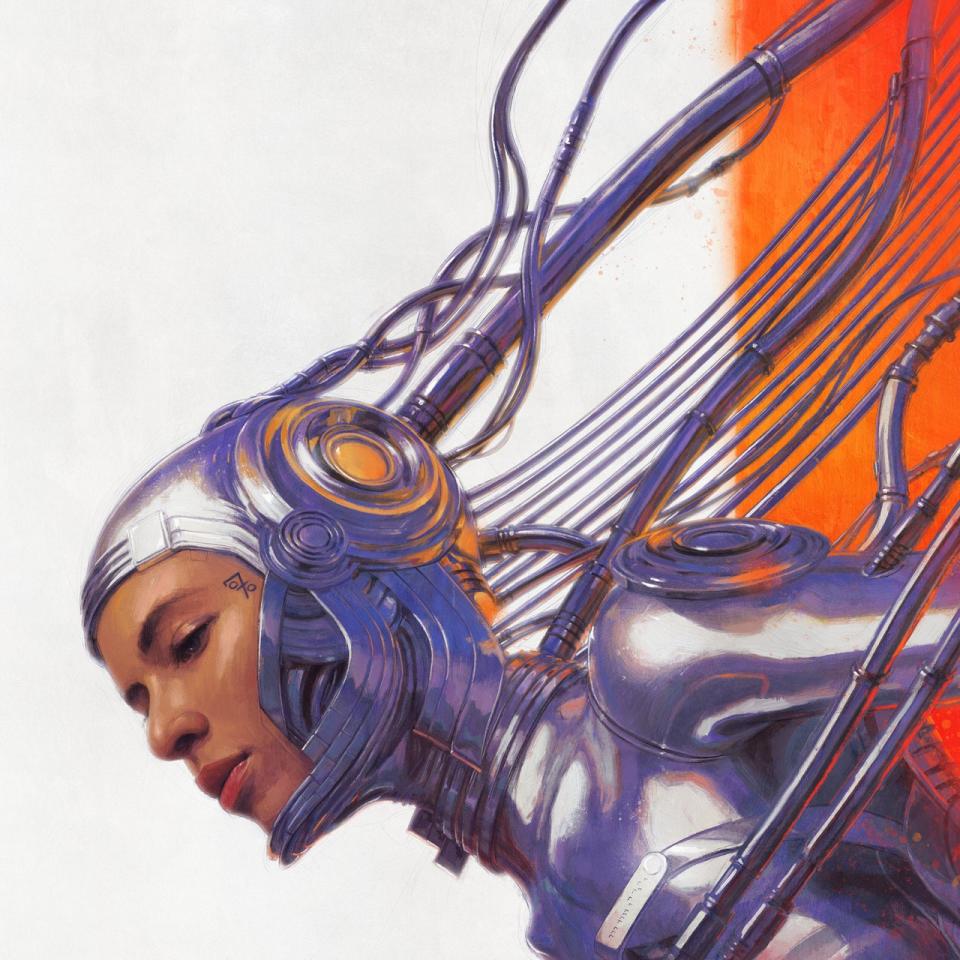
070 Shake: “Guilty Conscience”
070 Shake’s hypnotic voice makes hard things go down easier. In 2018, it was her verse on Kanye West’s “Ghost Town” that saved ye from complete, disaffected gloom. Now, on her debut LP, the GOOD Music/Def Jam recruit pours a spacey sheen over her own battles with substance abuse, heartbreak, and suicidal ideation to self-soothe, rather than self-destruct. And she does it best on “Guilty Conscience,” a big, ambient pop record that tells of a lover’s remorse after catching their partner cheating, only to reveal that they cheated first. With the sound of her vocals soaring over gauzy ’80s synths, even guilt gets its moment of grace. –Jenzia Burgos
Further Reading: 070 Shake Moves Beyond the Buzz
Listen: 070 Shake, “Guilty Conscience”

Ambar Lucid: “Fantasmas”
We all live with ghosts. There’s a strange kind of accompaniment that comes with them, even when they haunt us with disquieting endurance. On “Fantasmas,” Ambar Lucid considers the tricky feelings that come with these lingering spirits. We don’t know whether it’s a past relationship or family trauma that haunts her, but a simple, doo wop-style chord progression sets the stage for Ambar to unburden herself. The tender melancholia of the teenager’s lyrics bloom with aching beauty under the command of her sweeping voice, turning what seems like a plea for relief into a recognition of the wounds she must learn to heal from. –Isabelia Herrera
Further Reading: Ambar Lucid’s Arena-Sized Soul Will Help You Overcome
Listen: Ambar Lucid, “Fantasmas”

Arca: “Mequetrefe”
Arca’s music has always challenged listeners to free themselves from the constructs of pop, embrace bedlam, and find melodies in the noise. While her earlier releases were sometimes marked by nearly impenetrable abstractions, KiCK i feels just accessible enough to draw listeners into its maelstrom of chaos. Few tracks exemplify this duality as well as “Mequetrefe,” an ode to self-expression sans shame. Losing none of the aggression and confrontation that make her records so arresting, “Mequetrefe” is buoyed by a sweet and tender string melody that’s at odds with its twitchy surroundings but at peace with itself. –Matthew Ismael Ruiz
Further Reading: Live From Quarantine, It’s the Arca Show
Listen: Arca, “Mequetrefe”

Bad Bunny: “Safaera” [ft. Jowell & Randy and Ñengo Flow]
There isn’t a single wasted moment on “Safaera,” Bad Bunny’s epic homage to old-school perreo culture. The five-minute song is an all-consuming aesthetic maelstrom that is continually transforming; each beat change connects another link in a chain of references, establishing a masterful reggaetón timeline. With the energy of an intuitive DJ mix, producers Tainy and DJ Orma pieced together a whirlwind of a track as evocative for longtime fans of the genre as it is educational for newcomers. Standing confidently at the center of the saga is Bad Bunny himself. Amid the near-constant chaos of the song’s sonic shifts, he is resolute, moored firmly by his commitment to the music that he loves and the history held within it. –Sheldon Pearce
Further Reading: A Day in the Life of Bad Bunny, Introverted Superstar
Listen: Bad Bunny, “Safaera” [ft. Jowell & Randy and Ñengo Flow]

Bad Bunny: “Yo Perreo Sola”
Perreo, as a genre, dance, and movement, has always been about power. And with “Yo Perreo Sola,” Bad Bunny offers a consent-driven treatise centering a woman’s independence on the dancefloor. The video even features the superstar donning the chains, latex, and thigh-high boots of the song’s narrator, as he exhibits a genuine desire to play with gender expression in a genre often catered to the male gaze. But “Yo Perreo Sola” also repeated reggaetón’s long-standing pattern of relegating female vocalists to anonymity; Puerto Rican rapper Nesi, who delivers its chorus with a passionate drawl, was uncredited upon the song’s release. The oversight was later rectified with a remix featuring her (this time with a credit) alongside pioneer Ivy Queen—whose legendary “Quiero Bailar” set the terms for this track—providing vindication for the caballotas who just want to dance in peace. –Stefanie Fernández
Listen: Bad Bunny, “Yo Perreo Sola”

Beatriz Ferreyra: “Echos”
Argentine composer Beatriz Ferreyra is renowned for the disorienting spatiality and shape-shifting abstraction of her electronic and tape-based work, but it’s the human scale and raw intimacy of “Echos” that startle. Recorded in 1978 but released for the first time this year, the piece is woven entirely from the voice of Ferreyra’s niece Mercedes Cornu, who died in a car accident prior to its composition. In places, the young woman’s voice flickers and trembles with playful delight, sounding impossibly alive. At other points, the melted murmurs and shimmered syllables feel soothing and psalm-like, as though the girl’s ghost is mourning herself. Listening to “Echos” is as poignant as stumbling upon a roadside shrine of flowers, candles, and photos, but Ferreyra goes beyond creating a memorial to Mercedes: She defies death itself and resurrects her niece as an aural apparition. Heard at any time in the four decades since its making, “Echos” would be touching. But in a year like this one, it breaks your heart. –Simon Reynolds
Listen: Beatriz Ferreyra, “Echos”
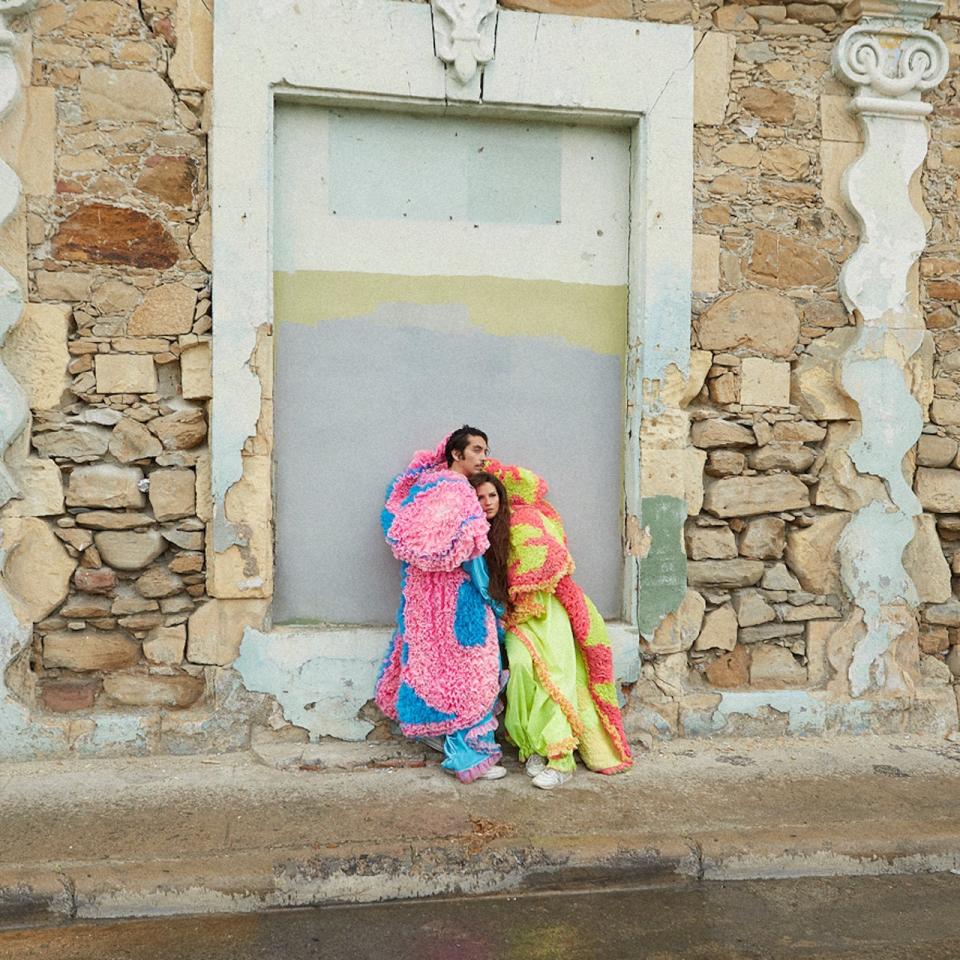
Buscabulla: “Club Tú y Yo”
There’s a particular kind of tropical depression that accompanies being a Caribbean diaspora kid, one that is hard to articulate in everyday vocabularies of longing. The magnetism of Puerto Rican duo Buscabulla’s debut album Regresa, a meditation on returning to your homeland, lies in its ability to harness ineffable feelings of desire and unbelonging. “Club Tú y Yo” distills plaintive seduction into a story of eternal romance. The orchestral arrangement from Helado Negro collages bongos, muted saxophones, and cowbells, recalling the timelessness of a beloved bolero. “Club Tú y Yo” captures Buscabulla’s singular ability to refract their roots into a kind of melancholy retrofuturism. –Isabelia Herrera
Listen: Buscabulla, “Club Tú y Yo”
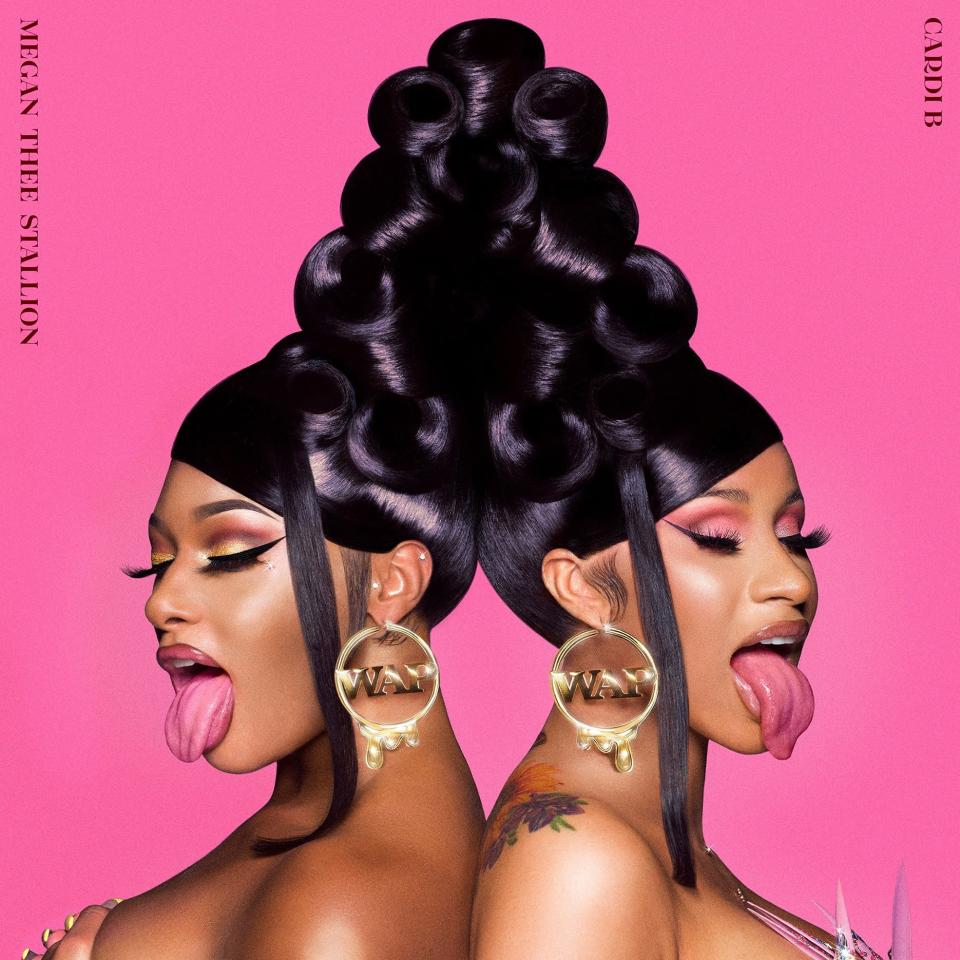
Cardi B: “WAP” [ft. Megan Thee Stallion]
Cardi B and Megan Thee Stallion rapped such a rich tapestry of filth on “WAP” that it earned a face-breaking 93 million streams in its first week and immediately went No. 1. This wasn’t a mere lyrical double-team, but two women in their career prime overpowering pop with a raw anthem attuned to the very specific frequency of certain pandemic urges; the rare instant hit that exists as a trend and future monument. Of the many words that could describe their duet—dirty, vulgar, nasty, explicit—none come anywhere close to capturing the attitude of the acronym itself. Over the tremors of a Baltimore club classic, “Whores in This House,” Cardi and Megan forgo euphemisms entirely (“I wanna gag,” etc.) to present an airtight case in favor of women expressing full-bodied lust. Megan presumably stands before an appellate court to do so, admitting, “Your Honor, I’m a freak bitch,” while a Cardi verse somehow tributes the unsung uvula amid an imposing tour de force of lecherous metaphors.
“WAP” is so decisively absent of shame that it’s now positioned alongside similar anthems by the likes of Khia, Lil’ Kim, and Trina. It’s as resonant as it is unreachable: consider that, in a year of fairly learnable TikTok challenges, the dance for “WAP” asks that you transition from a floor-hump to a windmill split. It’s a feat that the song exists at all, encapsulating a year in which women have been leading both the statistics and conscience of rap, and even forced conservative talking heads to contend with the extraordinary power of the word “pussy.” –Clover Hope
Listen: Cardi B, “WAP” [ft. Megan Thee Stallion]
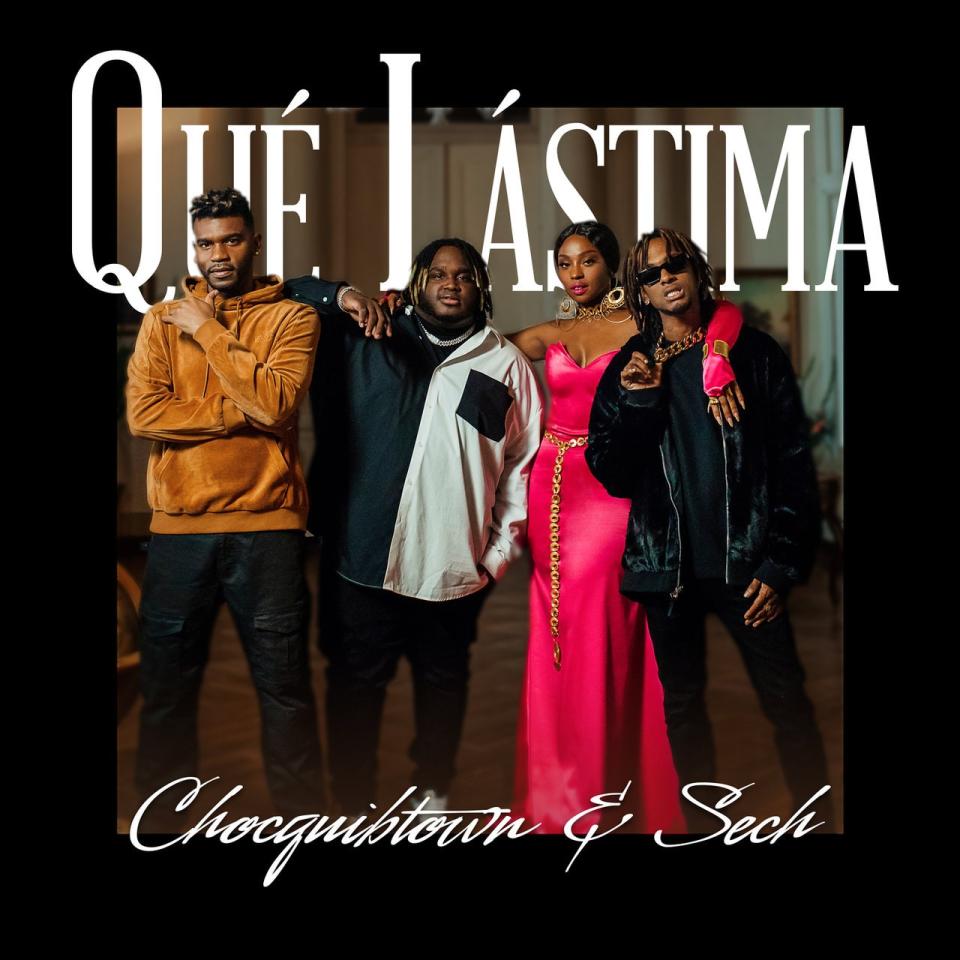
ChocQuibTown / Sech: “Qué Lástima”
Colombian trio ChocQuibTown has spent almost 15 years crafting protest songs about racism and injustice in Latin America and their home of Chocó. In 2020, they continued this tradition by tapping newly crowned Panamanian pop darling Sech, one of the few Black stars in Spanish-language pop music, for a collaboration. Over a sunny dancehall riddim, ChocQuibTown members trade verses with Sech about escaping a toxic romance. The luxe video, filmed in a colonial mansion, features an entirely Black cast of dancers and models. ChocQuibTown singer Goyo said the video was intended to highlight the exclusion of Black Latinx from Spanish-language music’s visual world. With conversations about the whitewashing of reggaeton surging in 2020, “Qué Lástima” went down as a much-needed tonic for an overwhelmingly white industry. –Isabelia Herrera
Listen: ChocQuibTown / Sech, “Qué Lástima”

Chucky73 / Fetti031: “Dili”
Chucky73 and Fetti031 know they inspire envy. It’d be hard to argue otherwise: The ringleaders of the crew Sie7etr3 almost single-handedly reinvigorated the Latin trap movement with their singular Bronx flows. “Dili,” from their joint EP, encapsulates the untouchable aplomb and effortless irreverence that made them one of 2020’s rap revelations. Over a production of off-kilter piano keys, cocking guns, and speaker-knocking bass, Chucky and Fetti trade bars about flexing and shit-talking with steady, assured flows. Even if you can’t ride through Highbridge or Fordham blasting “Dili” at rude volumes, the pair’s elastic Dominican palabreo hits hard enough to be enjoyed anywhere. –Isabelia Herrera
Further Reading: Meet Chucky73 and Sie7etr3, the Bronx Crew Bringing Latin Trap Home
Listen: Chucky73 / Fetti031, “Dili”
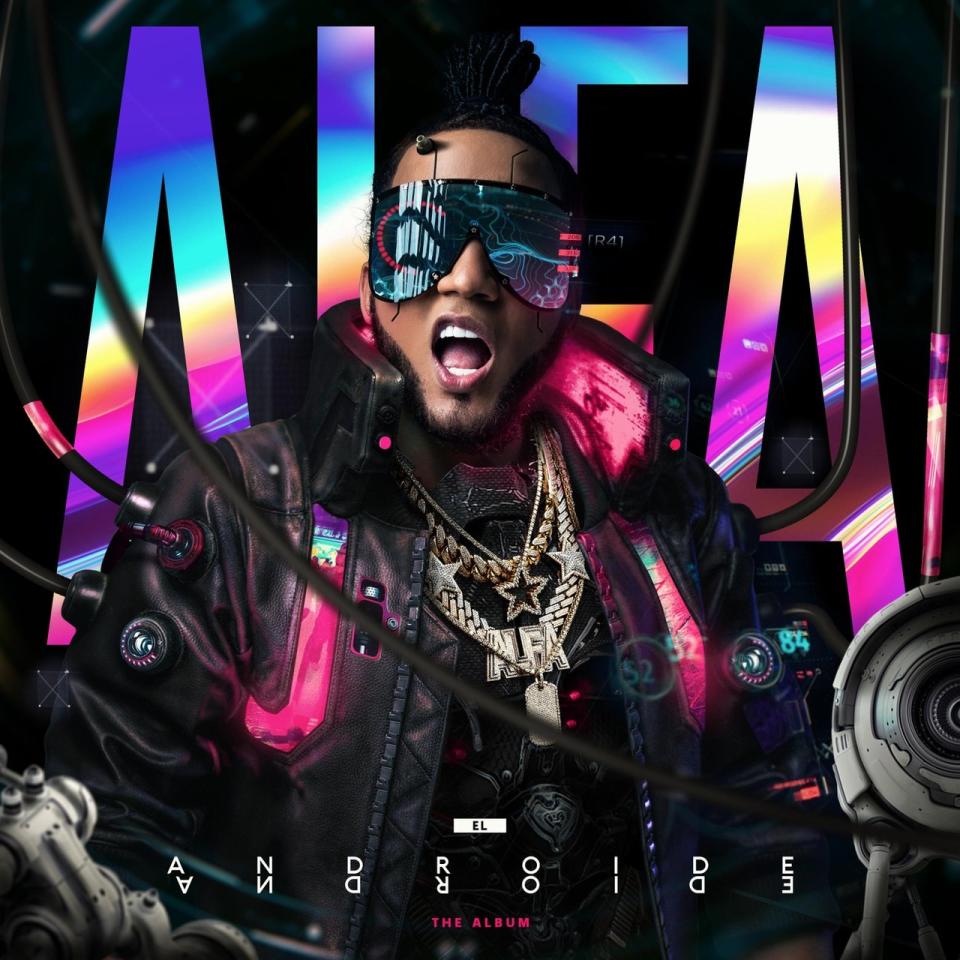
El Alfa: “Hablamos Nunca” [ft. Bethoven Villaman, El Fother, and Kiko El Crazy]
El Alfa’s “Hablamos Nunca” runs like a graduate seminar in dembow flexing. The genre’s global ambassador is in excellent form here, momentarily halting his quest for international fame via collabs with washed rappers like Tyga to return to the razor-sharp barbs and madcap antics that made him the king in the first place. Over a deliciously repetitive beat, El Alfa brushes off clout-chasing enemies with the ultimate snub—a refusal to even speak to them. The song’s features put an international spotlight on OGs Bethoven Villaman and El Fother, along with formerly underground up-and-comer Kiko El Crazy, making “Hablamos Nunca” a microcosm of the promise and potential coming out of today’s Dominican dembow landscape. –Isabelia Herrera
Listen: El Alfa, “Hablamos Nunca” [ft. Bethoven Villaman, El Fother, and Kiko El Crazy]

DJ Python: “ADMSDP” [ft. LA Warman]
Halfway through the gentle ebb of his album Mas Amable, DJ Python turns down a slipstream of inner consciousness. Poet LA Warman’s wary monologue sways over a faint backbeat suffused with the kind of dread usually found in haunted dubplates. Coming from Python, an ostensibly jolly club producer, “ADMSDP” might leave you grasping for your bearings. But then, what is a chill-out room if not a sensory deprivation tank with beanbags? The soft power of this 11-minute guided dissociation holds true of any therapeutic method: The more you give in to it, the more necessary it becomes. –Gabriel Szatan
Further reading: DJ Python Will Make You Feel Good
Listen: DJ Python, “ADMSDP” [ft. LA Warman]
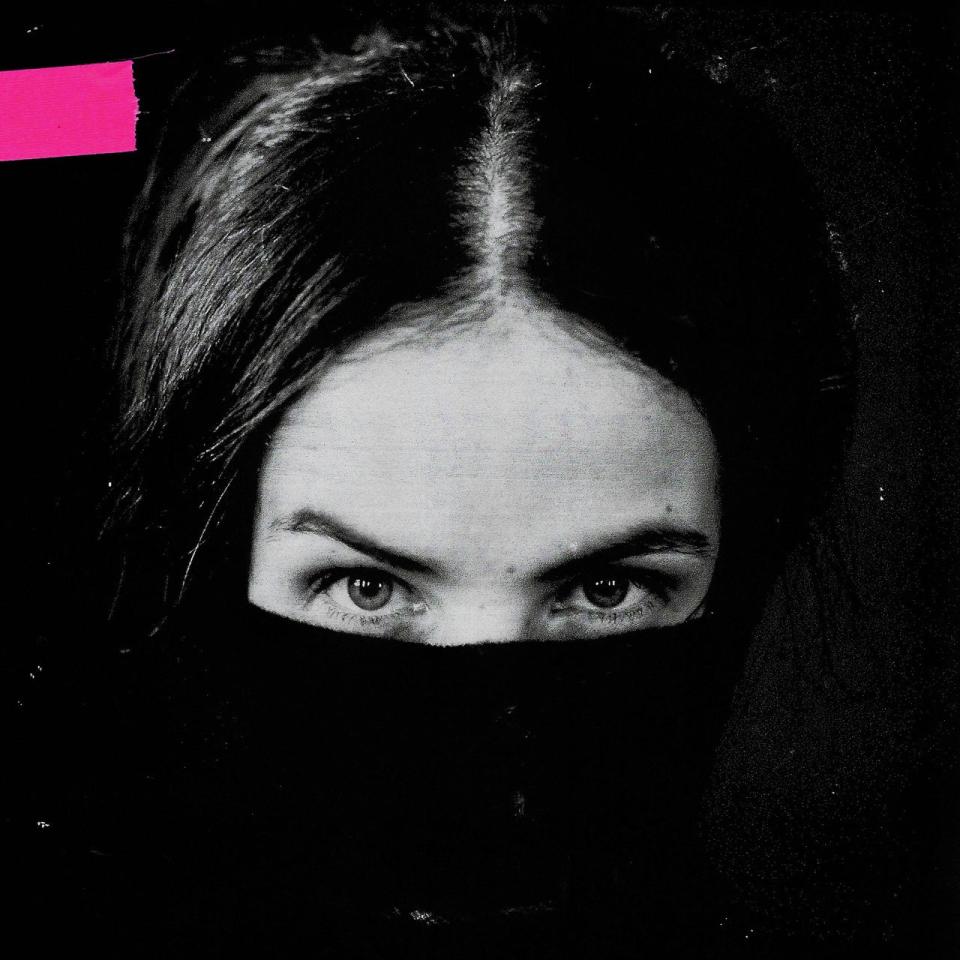
Ela Minus: “dominique”
After years of playing in emo bands and releasing candy-coated electropop, Ela Minus splits the difference on “dominique.” The standout from her debut LP, acts of rebellion, is a depressive ode to sleeping all day and never leaving the house set to bright, buoyant melodies. Even as she teeters on the edge of the abyss, wasting away with coffee and liquor as her only companions, she finds humor in the downward spiral: “I should probably eat something that’s not liquid,” she deadpans. Recorded more than a year before much of humanity was sheltering in place, its themes of isolation and delirium feel prescient, offering a view from indoors that, for many, will look like a reflection. –Matthew Ismael Ruiz
Further Reading: Ela Minus Makes Techno-Pop for Everyday Rebellion
Listen: Ela Minus, “dominique”

Futuro Conjunto (Simonada): “Heatdeath”
Futuro Conjunto is a speculative fiction multimedia project imagining the sounds of South Texas’ Rio Grande Valley from an apocalyptic future via a bootleg recording of a concert in an abandoned rocket facility. It’s also an amalgamation of the sounds of the Valley’s present, filtered through the minds of Jonathan Leal and Charlie Vela, two natives invested in documenting the music of their home. Simonada isn’t a real band—it exists solely for the purposes of Futuro Conjunto’s narrative—but it features the very real musicians Ruben Farias, Andy Peña, and Jesika Espiricueta. The lyrics in “Heatdeath” tell of the distorting effects of high temperatures, but the song’s somber melody feels more like an elegy for a universe that’s run its course. May our own ends sound so beautiful. –Matthew Ismael Ruiz
Listen: Futuro Conjunto (Simonada), “Heatdeath”

Haraca Kiko: “Los Bobo Son Mío”
Haraca Kiko is sketching a different kind of future for dembow. When “Los Bobo Son Mío” dropped in June, it exploded into a torch song for the underground dembow movement, capturing the scene’s freakier and goofier styles. Haraca Kiko’s high-pitched voice squeaks over the moaning production from Leo RD, his signature pant punctuating the beat with an addictive sense of mischief. In the video, he frolics around the block wearing pigtails (à la Loc Dog in Don’t Be a Menace...) and neon binky chains, like a candy-flipping ’90s club kid. Few artists are having as much fun as Haraca Kiko, and the rest of the dembow universe would do well to pay attention. –Isabelia Herrera
Listen: Haraca Kiko, “Los Bobo Son Mío”
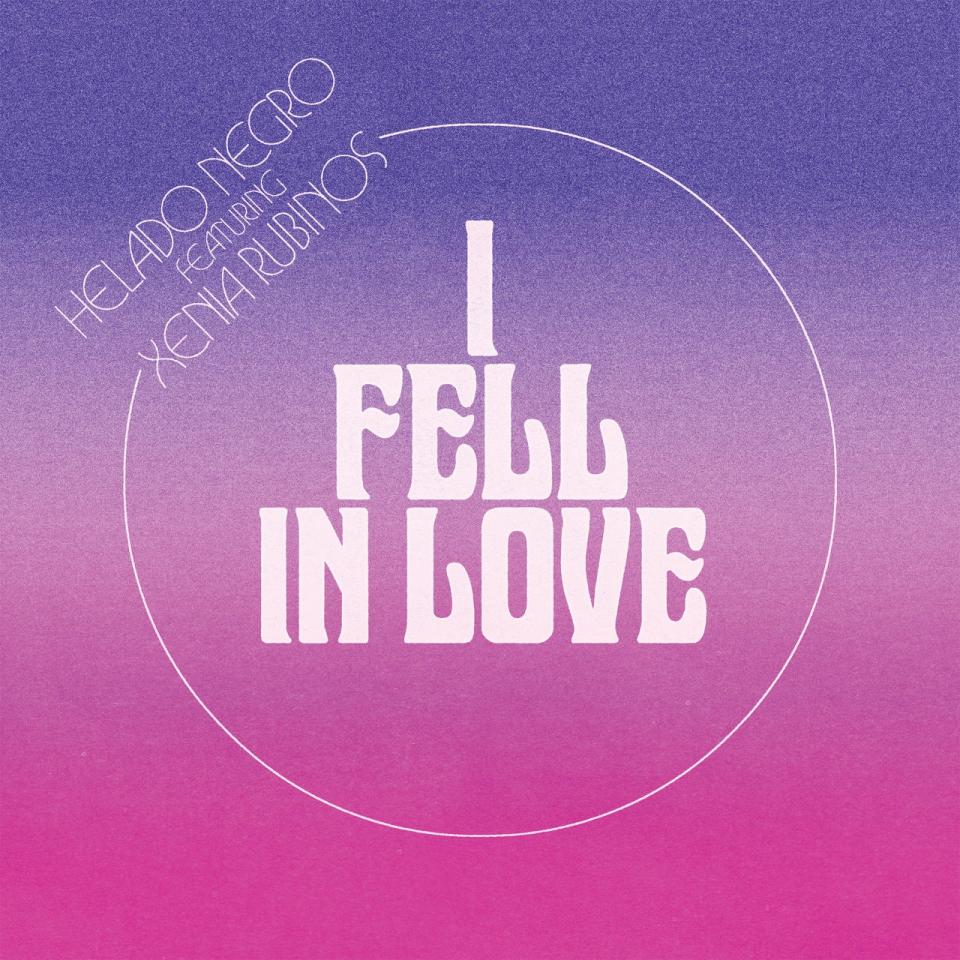
Helado Negro: “I Fell in Love” [ft. Xenia Rubinos]
While Helado Negro’s Roberto Carlos Lange has been exploring experimental sounds and textures for more than a decade, his more recent work adopts more pleasant frequencies in service of space-age lullabies and healing spells. “I Fell in Love,” a one-off single featuring the eclectic Brooklyn singer-songwriter Xenia Rubinos, is likely the most direct song either artist has ever made. Yet there’s power in this simplicity—it eliminates any obstacles that might stand in the way of the song’s sentiment, becoming an aural manifestation of love itself. Lange’s soothing voice turns hypnotic when drenched in reverb, and Rubinos returns the energy in kind, beaming lights into the dark. –Matthew Ismael Ruiz
Further Reading: Helado Negro Breaks Down Every Song on His New Album, This Is How You Smile
Listen: Helado Negro, “I Fell in Love” [ft. Xenia Rubinos]
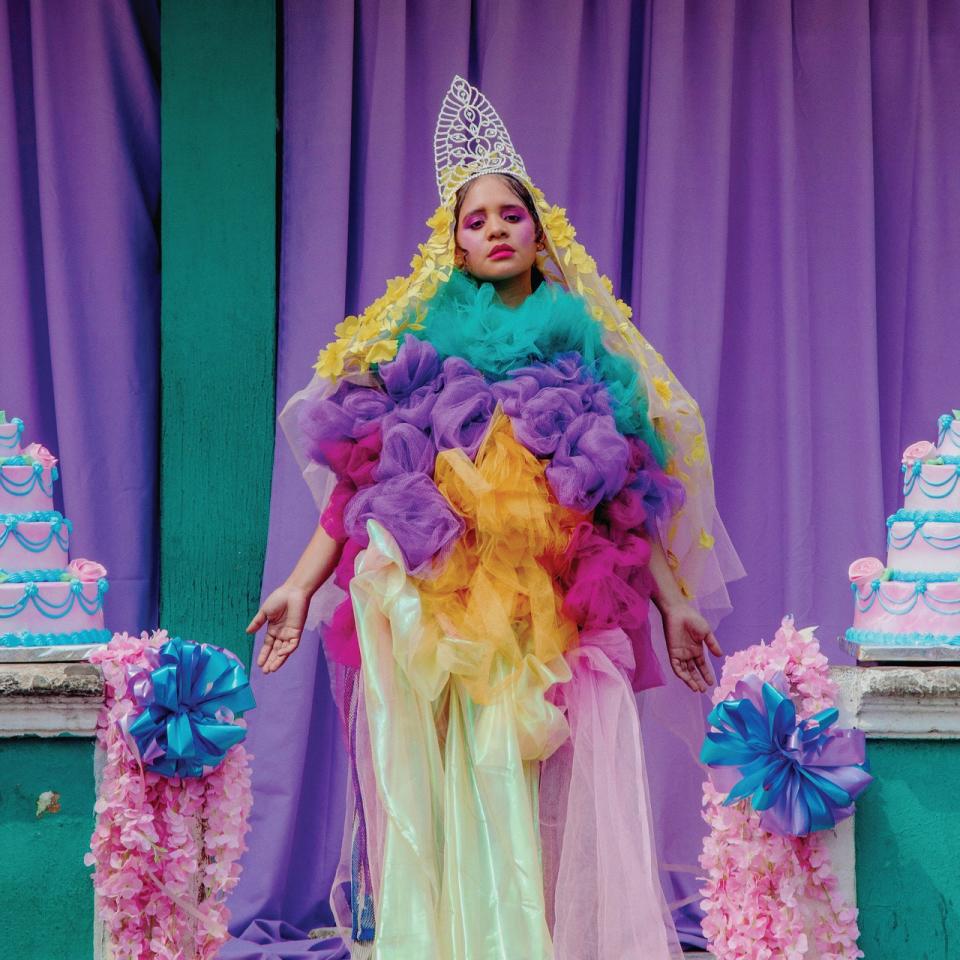
Lido Pimienta: “Eso Que Tú Haces”
On first listen, “Eso Que Tú Haces” seems like a plea to a partner who refuses to listen, who acts as though their gaslighting is evidence of affection. Lido asserts her worth as the production ascends into a spectral, porro-inspired beat. But when you look under the surface, this is more than a breakup song: It addresses centuries of abuse and erasure of Black and afro descendant people. The Colombian-Canadian artist says she wrote the song about the hypocrisy of the Colombian government embracing Blackness in moments of cultural celebration and international visibility, but still enacting violence through discrimination and social neglect. This is the power of “Eso Que Tú Haces,” and Lido Pimienta’s music in general. It is a brash act of refusal—of genre labels, of troubled relationships, but perhaps most importantly, of racial, colonial, and diasporic violence. –Isabelia Herrera
Listen: Lido Pimienta, “Eso Que Tú Haces”
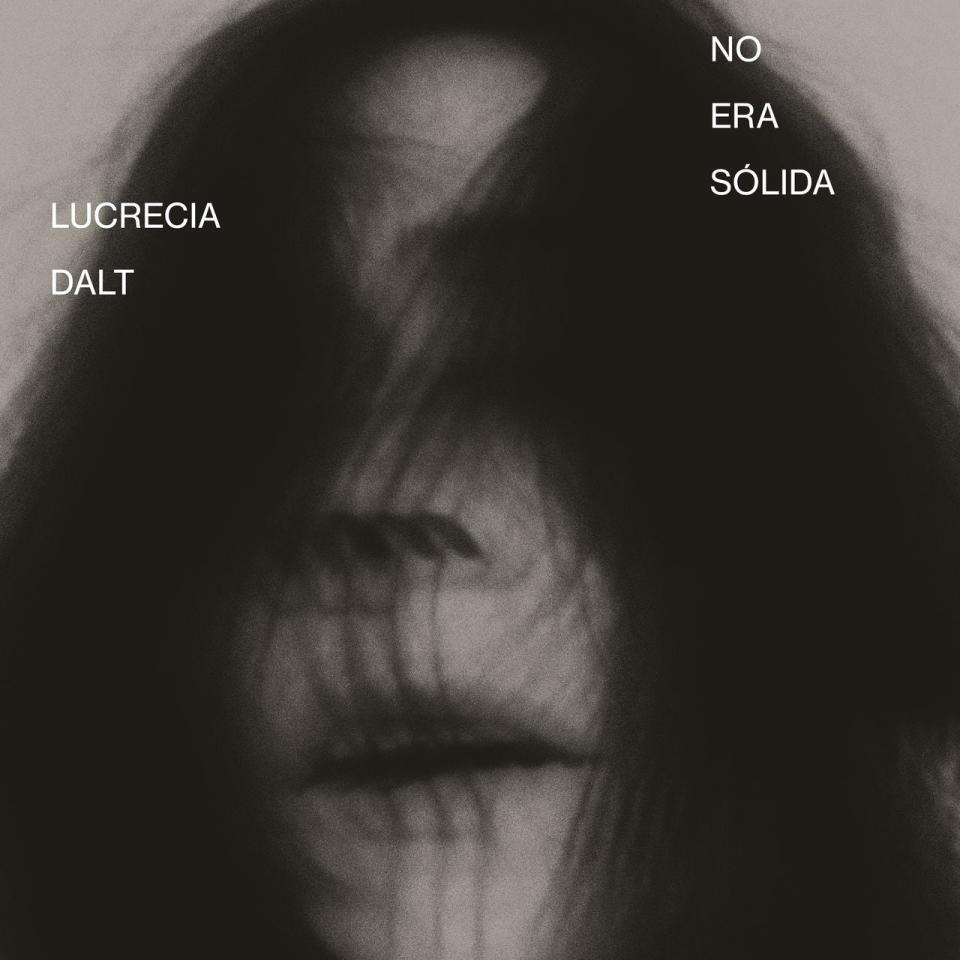
Lucrecia Dalt: “Disuelta”
The Berlin-based Colombian electronic artist Lucrecia Dalt spends much of her latest album No era sólida communing with specters—specifically, an alter ego named Lia. On its opening track “Disuelta,” which swirls with circuitous synths and twinkling bells, her voice is phantasmic, drenched in reverb, dissolving the fine line between Lucrecia and Lia. Their back-and-forth—spoken in an untranslatable glossolalia—is felt as much as it is heard, imbued with meaning by both its participants and its witnesses. It’s a language honed by years of experimentation with tones and textures, empowering her with the ability to wield electronics as instruments of organic expression. Spiritually, “Disuelta” is not too far removed from the field recordings of a Colombian forest that she also released with experimentalist Aaron Dilloway this year—the placid sounds of noumenal conversation amid the ether. –Matthew Ismael Ruiz
Listen: Lucrecia Dalt, “Disuelta”
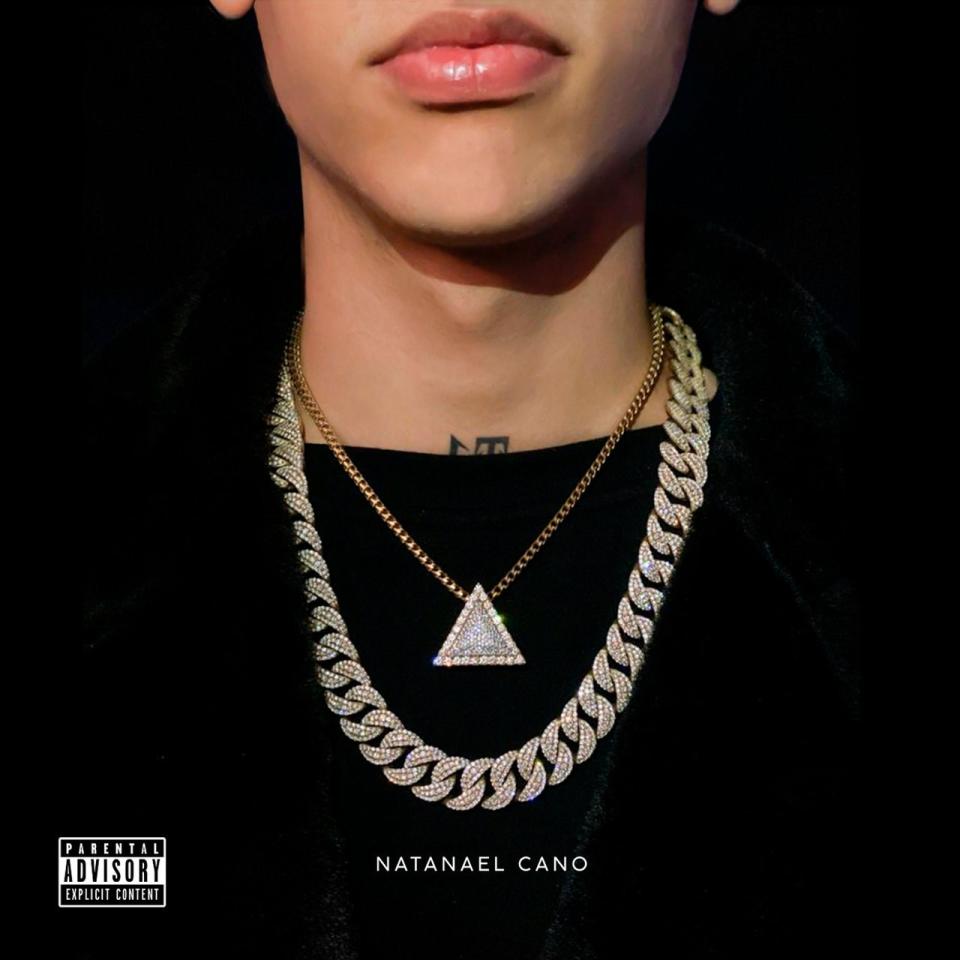
Natanael Cano: “Amor Tumbado”
Mexican corrido revivalist Natanael Cano got a signal boost last year when Bad Bunny jumped on the remix of his hit “Soy el Diablo,” and he followed up that big look with no less than three projects in 2020. But it’s “Amor Tumbado”—technically released in the final days of 2019—that best encapsulates why he’s at the forefront of the corrido tumbado movement, which has artists updating the classic Mexican narrative ballad with flourishes to remind you that we’re actually in the 21st century (“La canción se acaba y tú constante El WhatsApp,” he sings). More than anything, Cano understands that so many of us are messy bitches that love drama at heart, and few mediums are as well equipped to deliver this like a corrido. –Matthew Ismael Ruiz
Listen: Natanael Cano, “Amor Tumbado”

Nick Hakim: “QADIR”
Nick Hakim’s tribute to a deceased childhood friend shines in the details. Steady yet anxious congas, a gentle flute, and bright keys meld into an affectingly soulful plea for a kinder world. Like passing through a space inhabited by the spirits of lost loved ones, “QADIR” is both comforting and unsettling. As the track swells to symphonic levels, Hakim’s dusty timbre staggers to a halt and gives way to a haunting 10-person chorus, surrendering to a feeling that can no longer be expressed by words. Much like a life, “QADIR” reverberates long after it ends. –Jessica Kariisa
Further Reading: Nick Hakim on the Song He Wishes He Wrote
Listen: Nick Hakim, “QADIR”
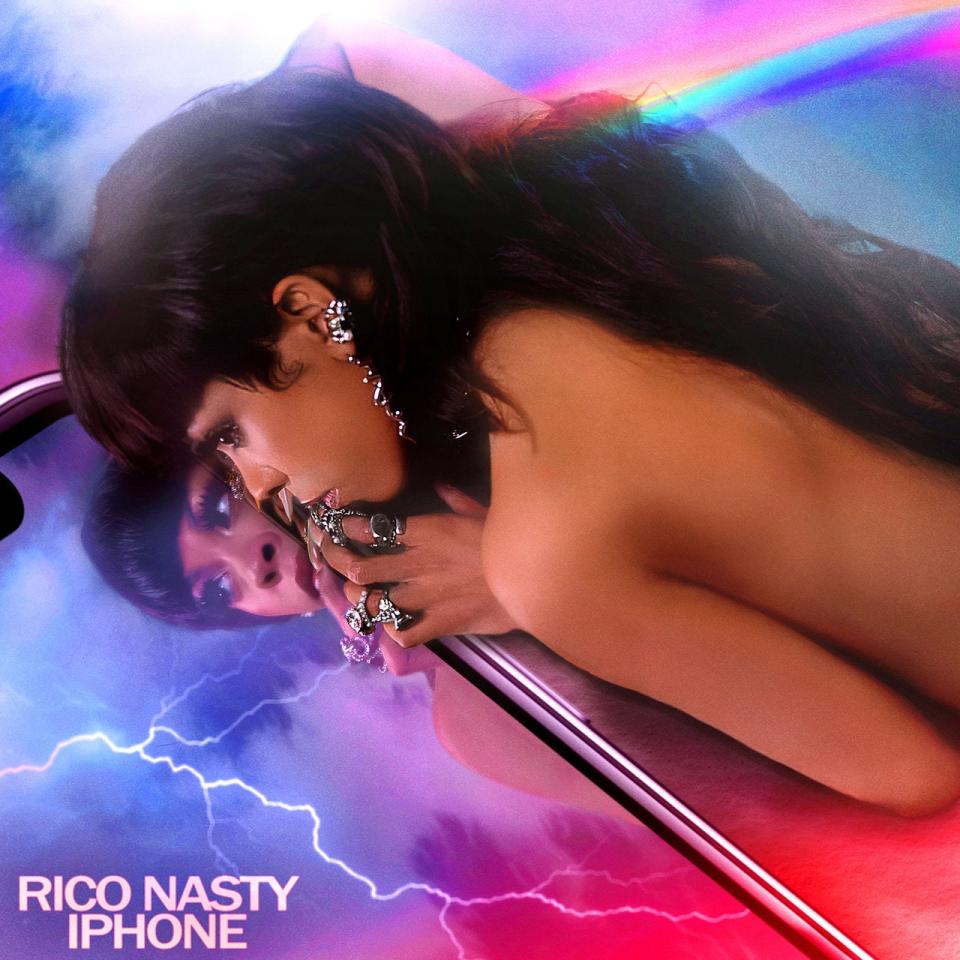
Rico Nasty: “IPHONE”
The first single off of Rico Nasty’s raucous album Nightmare Vacation considers the peaks and valleys of romantic love as analogous to our unhealthy relationships with our phones. Peppered with references to early aughts technological obsessions (“He on my hip like a Tamagotchi/Leave a heart on my wall so I can know you like me”), the track offers nostalgia wrapped up in the saccharine chimes and futurist hyperpop of 100 gecs mastermind Dylan Brady’s production. In the track’s most tender moments, the maxed-out vocal effects are toned down to center Rico’s melodic pleas for affection, capturing the unique angst of chasing love behind a screen. –Jessica Kariisa
Listen: Rico Nasty, “IPHONE”
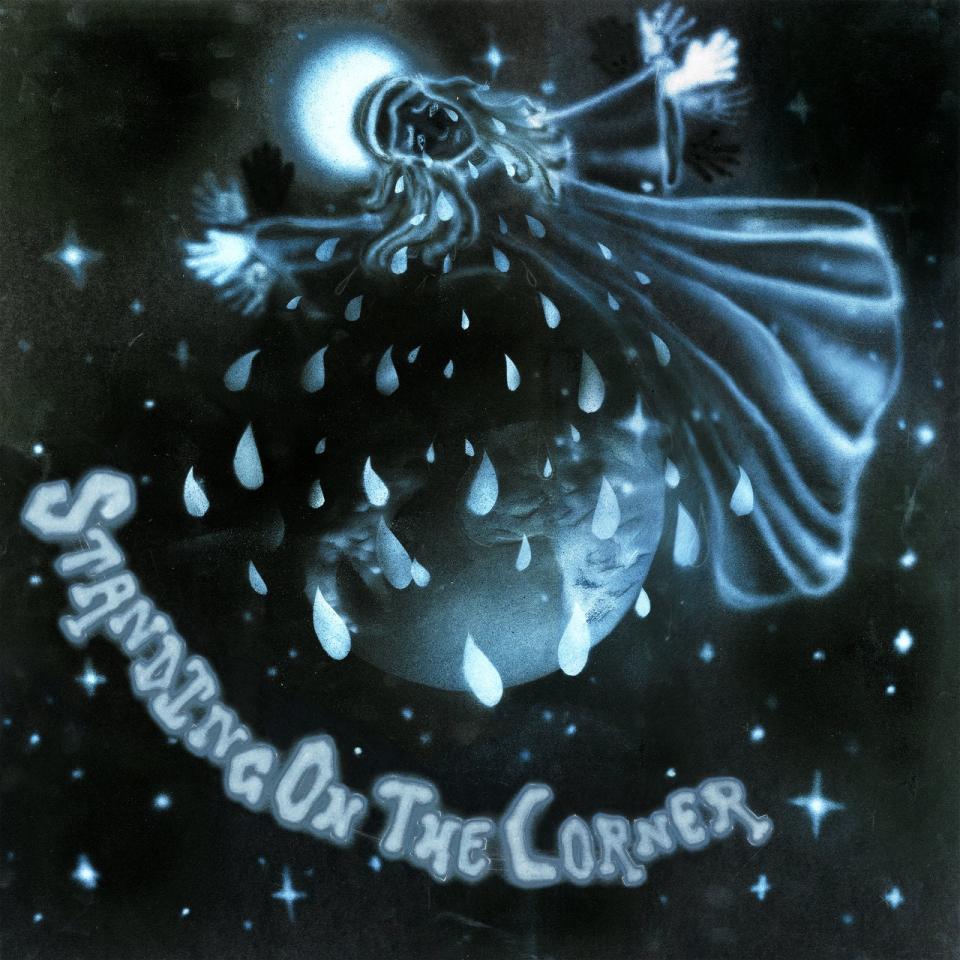
Standing on the Corner: “Angel”
Standing on the Corner have a way of capturing the wooziness of love. In its tenderest moments, the experimental jazz-indebted ensemble slows things down in order to disorient and emotionally disarm—the sonic equivalent of watching the world melt as your darling walks away upside-down and backward on the ceiling. “Angel” is another lovesick moment, resembling the group’s doleful rendition of the jazz standard “Body and Soul.” The melody is sumptuous, somewhere between carnal and spiritual, with bursts of distortion or horns punctuating the wobbling beat. “Angel” is sad but happy, alluring yet absurd, expressing the simple things we struggle to define. –Matthew Strauss
Listen: Standing on the Corner, “Angel”
Honorable Mentions: Aalok Bala: “Sueño”; Alice Bag: “Súbele”; Carolina Camacho: “Enredao”; Empress Of: “Bit of Rain”; Mula: “En el Aire”; Nick León: “Pelican Dub (extended)” [ft. Lila Tirando a Violeta]; Omar Apollo: “Want U Around” [ft. Ruel]; Rita Indiana: “Como un Dragón”; Sexores: “Volantía”; Yendry: “Nena”
Originally Appeared on Pitchfork

